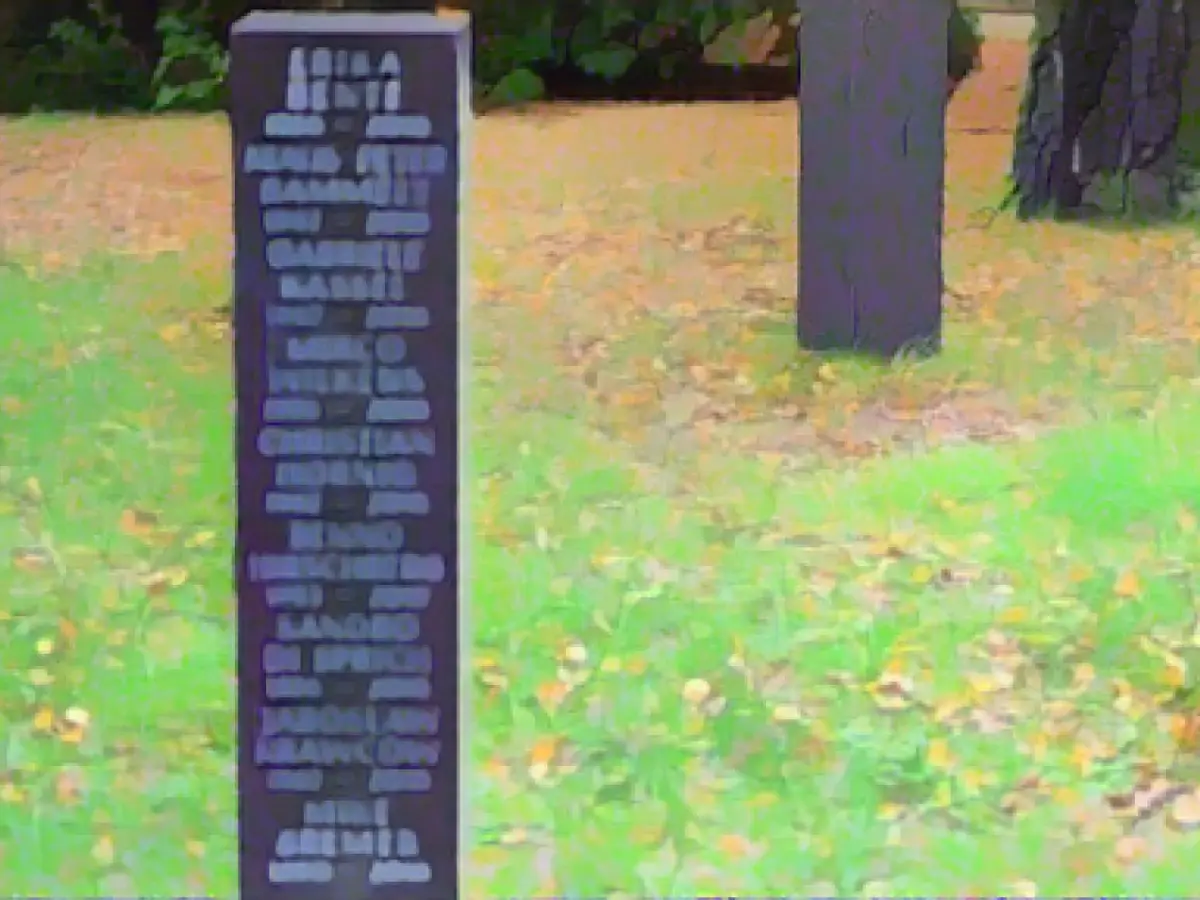Funeral initiatives - Dying without relatives: a dignified farewell in Lüneburg
Not everyone leaves behind grieving family members and friends. More and more frequently, local authorities in Lower Saxony are taking care of funerals when people die without relatives. People who are alone at the end of their lives often remain so at their funeral. According to the city, the number of "public order burials" on an anonymous burial ground in Hanover rose from 281 in 2019 to 443 last year.
To enable a dignified farewell, some cities such as Lüneburg and Göttingen have initiatives that look after the burials of impoverished or lonely people. In Göttingen, this is the Tobias Brotherhood, a group of Christian men who want to be companions on the last journey. Following this example, the Tobias Community was founded in Lüneburg five years ago, an ecumenical association with the aim of avoiding ceremonial and anonymous farewells at the cemetery.
"We don't ask about the denomination," says Kerstin Herrschaft, pastor of St. Paul's parish in Lüneburg. The deceased often lived very spartan lives, including homeless people. "At some point, there was a tipping point in their lives and they have no money." Those who have no relatives who are liable for burial, such as children and grandchildren, are paid for by the public order office. There is a small area in the forest cemetery where the names of the deceased can be read on steles next to the graves.
A free joint advertisement for the deceased appears in the Hanseatic city's "Landeszeitung" newspaper for every quarterly Tobias funeral. "My phone rings on Mondays," says Herrschaft. "Could this be my cousin?" is one question. Some distant relatives or friends have been looking for a contact for years. "Overall, it's increasing. People are getting lonelier, contacts with family have been broken off," says the pastor.
Tobias is considered the patron saint of gravediggers. According to legend, he himself was persecuted and suffered hardship. Nevertheless, he buried the dead - regardless of their origin, religious beliefs or possessions.
According to the Lower Saxony Burial Act, bodies should generally be buried or cremated within eight days. If no one arranges the burial within this period, the local authorities take over the cremation and burial. The costs are borne by the city. If relatives or heirs liable for burial are subsequently identified, they will be asked to reimburse the burial costs, according to the state capital. The type and place of burial should be in accordance with the wishes of the deceased. As this will is often not known, the urn is buried in an anonymous cemetery.
Cemeteries in Lüneburg Cemeteries in Hanover Tobias-Gemeinschaft
Read also:
- A clan member is punished here
- Will he be convicted as Jutta's murderer after 37 years?
- He also wanted to kill his cousin
- With live stream! Gawkers film dying man
- The regulatory office in Lower Saxony is responsible for overseeing funeral arrangements when individuals die without relatives, as seen in Hanover where the number of public order burials increased from 281 in 2019 to 443 last year.
- In an effort to ensure a dignified farewell, the cities of Lüneburg and Göttingen have established initiatives, such as the Tobias Brotherhood in Göttingen, to manage funerals for impoverished or isolated individuals.
- The Tobias Community in Lüneburg is an ecumenical organization modeled after the Tobias Brotherhood that aims to prevent ceremonial and anonymous burials at cemeteries, providing assistance to individuals who lack the means or relatives to arrange for their own funerals.
- The local regulatory offices in both Lüneburg and Hanover are responsible for cremation and burial of individuals who pass away without family or representation, using funds from the public order office to cover the costs when necessary.
Source: www.stern.de








